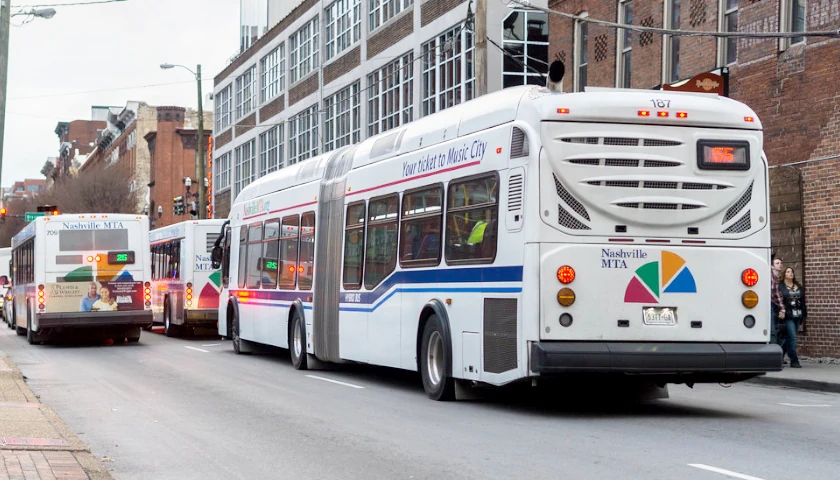by Madison Hirneisen
Among the stack of bills the Virginia General Assembly sent to Gov. Glenn Youngkin this session is a measure that would align the commonwealth with a small batch of states moving to phase out subminimum wage employment for people with disabilities – a bill supporters say would eventually eliminate an “archaic” model dating back to the 1930’s.
The measure, which passed by the General Assembly last month, aims to phase-out the practice of paying people with disabilities less than the state’s minimum wage. House Bill 1924 by Del. Patrick Hope, D-Arlington, sets increased wage rates starting this summer that employers who currently pay a subminimum wage to workers with disabilities would be required to pay.
Specifically, the bill would gradually raise pay for people with disabilities being paid subminimum wage to $9.50 an hour starting July 1, $10.50 an hour starting July 1, 2024, and $11.50 an hour starting July 1, 2025. Beyond July 1, 2026, employers would be required to pay employees with disabilities at the same rate of minimum wage set by Virginia law for hourly employees.
The bill follows a recent bipartisan push at the federal level and among individual states to eliminate subminimum wage for employees with disabilities. Under the Fair Labor Standards Act of 1938, an employer who holds a “14(c)” certificate from the U.S. Department of Labor does not have to follow federal minimum wage laws when it comes to employing individuals with disabilities.
As of Jan. 1, 10 employers in Virginia hold or had applied for 14(c) certificates to pay subminimum wages to people with disabilities, according to data from the U.S. Department of Labor. These employers are not corporations like McDonald’s or Starbucks, but employers that are often referred to as “sheltered workshops.”
Disability rights advocates estimate about 325 people with disabilities in Virginia are currently employed and paid a subminimum wage. On average, a person with a disability working under a 14(c) certificate is paid $3.34 an hour, according to a 2020 report from the U.S Commission on Civil Rights.
“The subminimum wage is an archaic, old model that has outlived its use,” Tonya Milling, executive director of The ARC of Virginia, told The Center Square. “There are better ways to support people in community.”
This was the second year Hope, who used to coach basketball with the Special Olympics, introduced this measure. Hope’s bill follows the recent receipt of a $13.8 million federal grant by the Virginia Department for Aging and Rehabilitative Services, which is meant to help transition individuals who are currently under 14(c) employment into employment in the general workforce. The grant funding is over five years.
Milling said this grant will help providers with a 14(c) to essentially “change their business model,” and shift from being a “job shop” that facilitates contract work for employees with disabilities into a resource that helps those individuals get jobs in their communities.
“What I wanted to do with this bill is to close the door – to make sure that we take care of these 325 employees with this $13.8 million grant and we close the door behind us to make sure that no other employers apply for this waiver to pay people with disabilities a subminimum wage,” Hope told The Center Square in an interview.
Donna Bonessi, director of employment services and special programs at the Department for Aging and Rehabilitative Services (DARS), told The Center Square the goal with the grant funding is to “help individuals ensure that their first choice of employment is not subminimum wage.” She noted the purpose of the grant is to develop services that will allow individuals with disabilities to find opportunities for employment in the general workforce.
According to Bonessi, three of the 14(c) employers in Virginia are working with DARS to transition their workers from 14(c) employment to integrated employment in the community, and two others have indicated interest. Bonessi clarified the grant does not call for the elimination of 14(c) certificates, but it is meant to help workers under 14(c) employment to transition into jobs in the community.
Teri Morgan, executive director of the Virginia Board for People with Disabilities, said she sees what is happening with subminimum wage policy in the commonwealth as a “milestone change.”
“The trend has been people moving out of these (sheltered workplace) settings for a number of years, and a number of 14(c) certificate holders have given up their certificates or are not using them,” Morgan said. “But it’s also a statement of values and principles on what we as a Commonwealth value in terms of employment and dignity and full integration.”
The bill is one of more than a thousand measures the General Assembly sent to Youngkin before adjourning the 2023 legislative session. While no organizations opposed the bill as it wove its way through the legislature, the measure did spark debate in the Senate among Republicans.
State Sen. Steve Newman, R-Lynchburg, raised concerns the measure would result in people with disabilities losing employment. In a floor speech last month, State Sen. Newman urged his colleagues to vote against the measure, proposing an alternative idea that next year, the General Assembly set aside $6 million in the budget to pay the “delta” between what individuals with disabilities are earning now and the state’s minimum wage.
The bill ultimately passed the Senate on a near party-line vote, with most Republicans in opposition.
Hope called the vote “incredibly disappointing,” and said this raises concern about what happens when the bill is before Youngkin.
“Will the governor sign it or will the governor veto it or will he amend it?” Hope questioned. “I’m very concerned about that because of the partisan vote that came out of the Senate.”
“This bill has no opposition whatsoever,” Hope added. “It’s not opposed by businesses. It’s not opposed by advocacy groups of people advocating for people with disabilities. So, where’s the opposition coming from other than just a misguided belief that this will be harmful?”
The delegate said he hopes Youngkin will “look at the possibilities of what someone with disabilities can do” and follow the “trend” of moving away from subminimum wage. If the bill is signed into law, Virginia would become the 16th state to phase-out subminimum wage, according to Hope.
– – –
Madison Hirneisen is a staff reporter covering Virginia and Maryland for The Center Square. Madison previously covered California for The Center Square out of Los Angeles, but recently relocated to the DC area.
Photo “Starbucks Employees” by HAO XING. CC BY 2.0.





